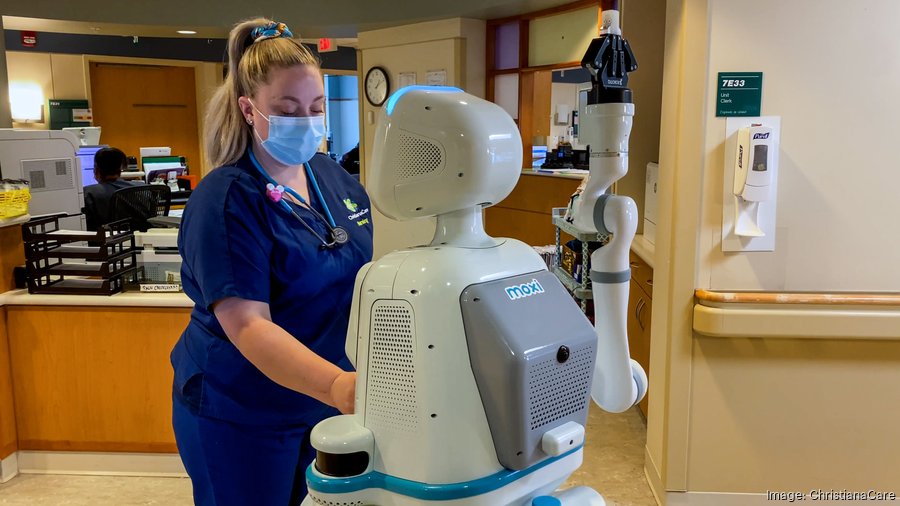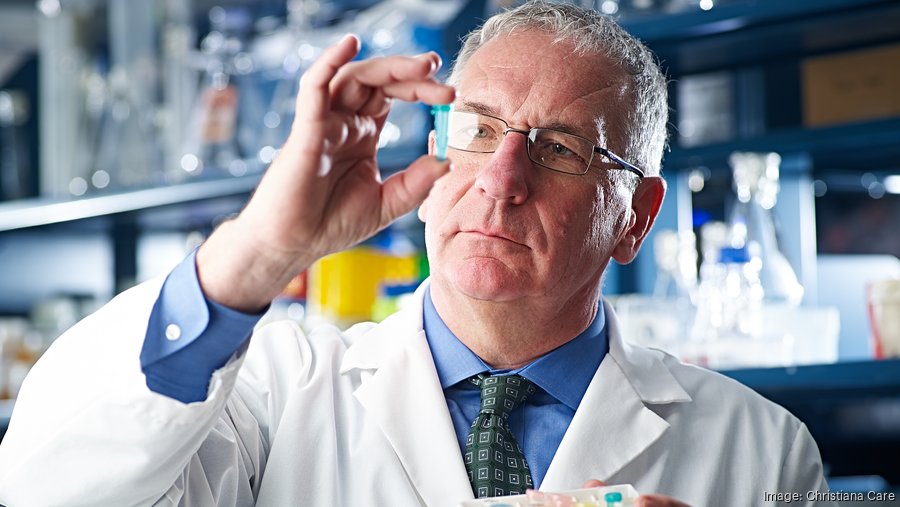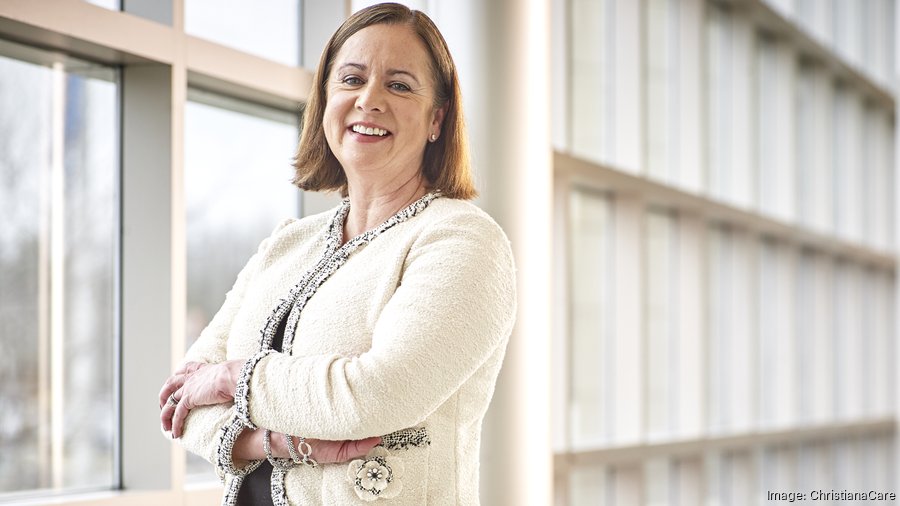Listen to this article 2 min
ChristianaCare is making steady progress with its "game-changing" partnership with Pittsburgh-based health insurer Highmark, formed in April 2021 to improve health care outcomes and make services more accessible and affordable.
"We saw the opportunity to solve one of the most critical issues in society, which is health care — particularly the challenge of access and also the rising cost of care," said Dr. Janice Nevin, CEO of Wilmington-based ChristianaCare. "This is a partnership that's committed to redesigning how care is delivered in concert with redesigning how it's paid for. And that's the opportunity here, to design the delivery model and the payment model at the same time."
Nevin, speaking at the Philadelphia Business Journal's recent Health Care CEO Summit at City Winery, said the joint venture with Highmark now has a name, Curascend, and the two organizations last year launched a Medicare Advantage plan for senior adults in Delaware.
"Over the last two years, an extraordinary amount of work has been done," she said. "The joint venture houses our data-sharing operations, which sounds sort of mundane, but just to get to the data sharing agreement was extraordinary. We also exceeded the numbers that we expected when we launched our set up for virtual health, which is also part of the partnership. We are really trying to understand what is the role of virtual health in care delivery."
Going forward, Nevin said, the joint venture intends to focus on growing its Medicare Advantage plan. She also sees a "significant opportunity" to use the clinical and cost data the joint venture is collecting and sharing. She noted the two organizations "see problems differently," and as a result create innovative answers.
"I think you're going to see us put some structure around how we're going to innovate and commercialize that innovation," Nevin said. "The workstreams that we have in place will continue to evolve. Some of the work we are doing is really, really hard work."
Achieving the goal of a global redesign for how hospitals get paid for care will take time, she said, but the joint venture remains committed to that goal.
Nevin said ChristianaCare has not been immune to the labor shortage and the challenge of filling vacancies.
"I think even pre-pandemic, we didn't have enough people in health care," she said. "We'll never have enough people in health care. The pandemic accelerated an issue that we already wrestled with."
Nevin said ChristianaCare has been looking hard at how best to use technology so caregivers can focus on providing direct patient care.
Last year, the health system — supported by a $1.5 million grant from the American Nurses Foundation — deployed three "Moxi" robotic hospital helpers at Christiana Hospital to handle non-clinical chores such as making deliveries of lab specimens, medications and supplies so nurses can focus on patient care.
"The Moxis work 24 hours a day and never ask for overtime or premium pay," Nevin said. "They are changing the work environment for our bedside caregivers."

ChristianaCare is also using technology to grow its hospital-at-home program, which provides hospital-level care to 300 people who would otherwise have to be admitted.
"The patient experience is extraordinary, the caregivers who deliver this care are thoroughly engaged and our quality metrics are outstanding," she said.
As for expanding its physical footprint, Nevin said the health system continues to work toward reopening the former Jennersville Hospital in Chester County, a property it acquired last summer from Tower Health for $8 million.
The site will be rebranded as ChristianaCare's West Grove campus and will be its first inpatient medical center in Pennsylvania.
Within the next few weeks, Nevin said the health system expects to announce some specific details surrounding the campus. One of the first actions, she said, will be restoring emergency health care services.
"We are very grateful to the community who have welcomed us, and we are deeply in a partnership to understand what are the needs of that community and how can we best meet them in a way that works, that is financially sustainable," she said. "We certainly don't want to make any promises and then five or 10 years from now not be able to deliver."
ChristianaCare nearly made a bigger splash last year when it explored acquiring Crozer Health in Delaware County. It ended up walking away from that deal in August.
When asked why ChristianaCare ultimately decided not to pursue the deal, Nevin would only say it wasn't the right fit. She hinted, however, the health system could one day be more active in the suburban Philadelphia county.
"When we think about growth, we think about our mission — which starts with how we can support people so that they can achieve the health goals and get everything they need close to home," she said. "Delaware County is our neighbor. I'm very grateful that we had the opportunity to go through the process. We learned so much about Delaware County. There are great people there and great leaders who care very deeply about their community. And so I do believe that as we look to the future, there will be opportunities for us to serve our neighbors."
Nevin also discussed one aspect of ChristianaCare that makes the health system unique: its gene-editing institute led by research scientist Eric Kmiec.

In October, the ChristianaCare Gene Editing Institute spun out its first company, CorriXR Therapeutics, which is being led by Kmiec. ChristianaCare and Brookhaven Bio provided $5 million in seed financing.
Nevin noted Kmiec, a pioneer in the gene editing field known as CRISPR, and his team have developed a therapeutic application for gene editing to be used as a treatment for solid tumors — specifically squamous cell carcinoma of the lung and also the head and neck.
"We're out there raising more funds [for the company]," she said. "I do think CRISPR along with cell and gene therapy will transform how we diagnose, how we treat, how we prevent [diseases and illnesses] in the future."
Nevin said supporting startups like CorriXR is a way for ChristianaCare to diversify its revenue stream.
"Investing in CRISPR and investing in gene editing is all part of our thinking about how we're going to be here for generations," she said.





